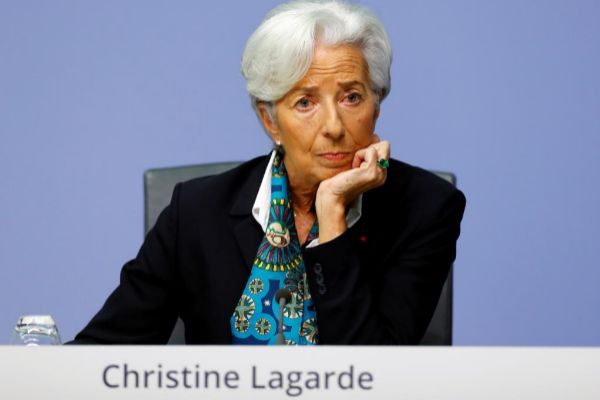In her first press conference as president of the European Central Bank (ECB), Christine Lagarde slightly revised her growth forecast for this year in the euro area slightly, although she lowered the outlook for 2020 to 1.1%, 0.1% less than your previous estimate. In any case, the head of the eurozone's monetary policy breathed some optimism. He appreciated signs of "stabilization" of the economic situation in the euro countries and ruled out a scenario of "Japanization", despite the clouds on the horizon of growth and inflation. Lagarde announced a review of the ECB's strategy before the end of 2020 - the last one occurred 16 years ago - although it set a continuum of monetary policy. Its warning about the need to complement the stimulus measures with the adoption of reforms that result in the path of fiscal consolidation should be addressed by the different governments. Including that of Spain, which is predisposed to launch a reckless increase in spending and tax pressure.
The growth of GDP in the eurozone, according to ECB projections, will be 1.4% in 2022, while inflation will increase 1.1% in 2019 to 1.6% in 2022. Lagarde committed to to support the measures launched in September by its predecessor, Mario Draghi, although he warned that the new strategy will incorporate challenges such as technological transformation, climate change and inequality . It should be borne in mind that, although the first quarter thrust surprised the markets, the eurozone in July slowed down, weighed down by economic erosion in Germany and Italy. That the slowdown can now be stabilized should serve as an incentive for the various governments to abandon any attempt at immobility.
Coinciding with this situation, Macron plays a large part of his mandate in the reform he has launched from the public pension system, which has already caused a week of work stoppages and mobilizations. The plan of the French president aims to merge the 42 pension schemes into one that matches all workers and set the age to obtain the full retirement pension at 64 years. The last concessions of the French Executive, verbalized by Prime Minister Édouard Philippe, not only have not placated the unions but they have announced a radicalization of their protests. Despite the deep social response in a society traditionally refractory to reforms, political responsibility forces us to bear the cost of unpopular measures . Sanchez should take note of Macron's reformist will and Lagarde's warnings.
According to the criteria of The Trust Project
Know more- GDP
- Mario Draghi
- Italy
- Spain
- Christine Lagarde
- Germany
- Editorial
Guindos printing: stability, essential
Get out and have fun, lose all hope
The intellectuals and Spain Miriam González Durántez: "Politicians have been given a lot of power in Spain"

